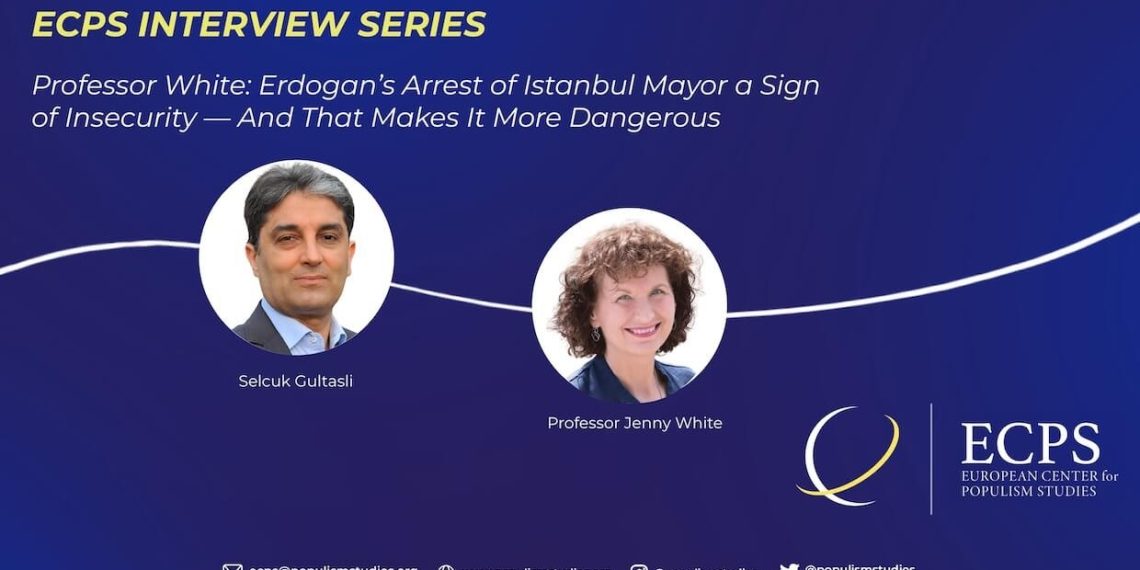In a comprehensive interview with ECPS, Professor Jenny White calls the arrest of Istanbul Mayor Ekrem Imamoglu “absolutely… a sign of insecurity”—not strength. Professor White warns that this preemptive strike ahead of the 2028 elections reflects “regime fragility,” not confidence, adding: “If this stands… voting ceases to have any real meaning.” Drawing on her concept of “spindle autocracy,” she explains how personal loyalty has overtaken institutional merit, creating a brittle, fear-driven system. With Erdogan’s popularity fading and international pressure weakened, Professor White argues, “This is a line that has now been crossed”—one with dangerous consequences for Turkey’s democratic future.
Interview by Selcuk Gultasli
In a wide-ranging and incisive interview with the European Center for Populism Studies (ECPS), Professor Jenny White—renowned anthropologist and scholar of Turkish politics at Stockholm University—explores the deeper implications of Istanbul Mayor Ekrem Imamoglu’s arrest and what it reveals about the current phase of Turkish President Recep Tayyip Erdogan’s authoritarianism. “Oh, absolutely—it’s a sign of insecurity,” Professor White declares. “And that makes it all the more dangerous, because this is a line that has now been crossed.”
This stark assessment lies at the heart of Professor White’s reflections on how Erdogan has evolved from a populist reformer to an embattled strongman. The arrest of Imamoglu—widely seen as the opposition’s most viable presidential contender in 2028—is not an act of confidence, but of regime fragility. “If this stands… and especially if the party itself is taken over, then voting ceases to have any real meaning,” she warns.
Professor White locates this shift within a broader trajectory of democratic erosion in Turkey. Drawing from her concept of spindle autocracy, she describes a system where loyalty to the leader has eclipsed merit and institutional integrity. “You cannot disagree. If you disagree, you are a traitor,” she says, noting that once individuals fall out of favor, they are discarded—spun out like raw wool from a political spindle.
Far from being the first rupture, Imamoglu’s arrest is a culmination of earlier moves: the post-Gezi crackdown, the co-optation of the judiciary, and the mass purges following the 2016 coup attempt. “At this point, there are really no institutions left around Erdogan that have competence, aside from loyalty to him,” Professor White states.
The sense of insecurity extends beyond domestic calculations. Professor White suggests that global shifts, including the return of Donald Trump, have reinforced Erdogan’s sense of impunity. “Erdogan has nothing to fear from US censure… I’m quite sure Trump would support that kind of move,” she notes. The European Union, too, finds itself in a bind—caught between supporting human rights and preserving strategic ties with Turkey.
Despite Erdogan’s waning popularity, the fear of retaliation—and the AKP’s entrenchment in every layer of society—limits open dissent. As Professor White concludes, “You can’t forget that Erdogan still has a lot of people willing to vote for him—not necessarily because they’re passionately in love with him, but because they’re afraid of what happens if he’s gone.”
This interview sheds urgent light on the authoritarian logic of fear—and what happens when that fear governs.


